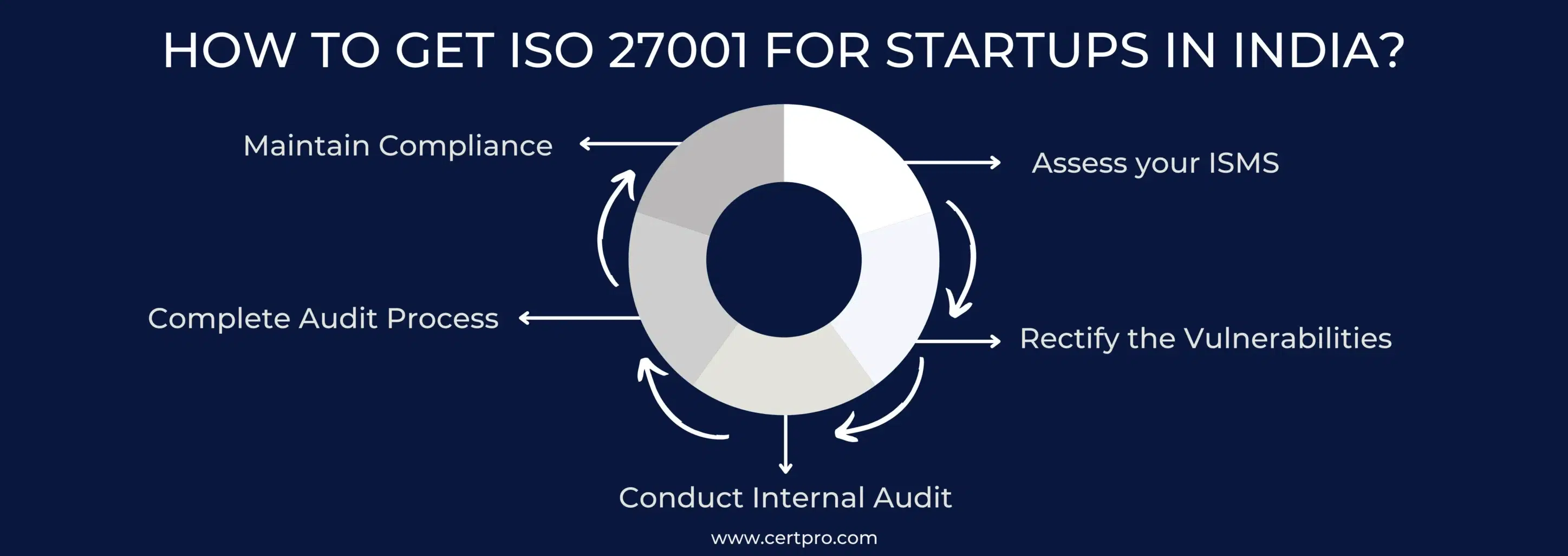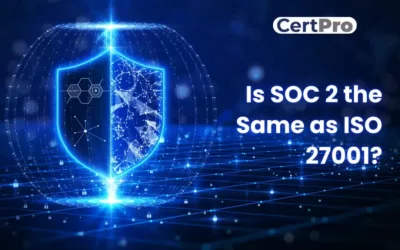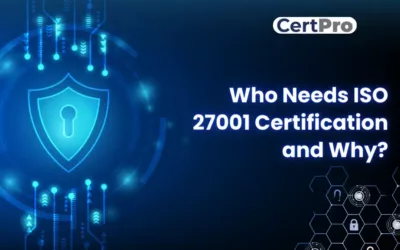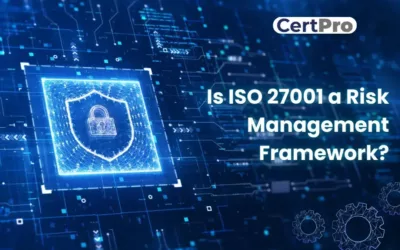India is the world’s fifth-largest economy, with a vibrant startup ecosystem that supports young professionals in making global changes. After the US and China, India ranks third globally for startup businesses. In this fascinating scenario, ISO 27001 for startups in India can open many doors for Indian entrepreneurs. However, the process of ISO 27001 certification is complicated and has no checklist. Still, compliance enhances the growth opportunities for startups.
This blog will provide enough information about ISO 27001 certification for startups, how they can get it, and why startups must go for ISO 27001 compliance. Therefore, read the blog to find a way for your compliance practice.
WHAT TYPE OF STARTUP In india NEED ISO 27001 certification?
Remember that ISO 27001 for startups in India is not mandatory compliance. However, the certification emphasizes the security aspect of your startup, ensuring smooth functioning and collaboration. Further, you must consider the ISO 27001 certification in the following conditions:
- If your startup collects, stores, processes, or handles and manages sensitive customer information, then compliance ensures quality of services.
- Your startup business aims to spread globally or handle data worldwide.
- The ISO 27001 certification is a global standard that can help your international presence.
In addition, any kind of business can opt for ISO 27001 certification regardless of their industries and services.
HOW TO GET ISO 27001 FOR STARTUPS IN INDIA?
ISO 27001 certification requires a multi-step endeavor, the complexity of which depends on your organization’s preparedness. However, some standard steps are described briefly:
Assess your ISMS: Ensure that your Information Security Management System (ISMS) will pass the certification test before you spend money on hiring an auditor. It is known as gap analysis. The process will compare your organization’s existing policies to the standard rules and find the gap. Therefore, checking your ISMS and giving you a clear list of which rules you meet or where the flaws can help you further. CertPro’s expert auditing team can help you recognize the flaws in the process with appropriate methods and strategies.
Rectify the Vulnerabilities: You know precisely what you need to do to make your ISMS meet the requirements of ISO 27001 certification for startups in India. The gap analysis helps you to identify the flaws in the existing process. This plan will help you organize and improve your ISMS to ensure it will pass a final ISO 27001 audit.
Conduct Internal Audit: You must audit your security program internally to get approval for ISO 27001. You can hire an external auditor, or internal employees can perform the internal audit. This person must have the proper knowledge of implementing compliance. How long this step takes will depend on the complexity of your ISMS. Thus, an internal ISO 27001 audit will be conducted to examine your ISMS and determine its vulnerabilities. Hence, the internal audit maintains your strong security stance and fills in any compliance gaps that might show up.
Complete Audit Process: The first step is the informal readiness review, which examines your ISMS to determine whether it meets the ISO 27001 standards. The second step is the official audit, which will occur if your system passes the readiness test. A formal audit can take weeks because the auditor must review your ISMS thoroughly. After this, you will get the final ISO 27001 certification. However, if you fail to pass the audit, you’ll have to pay more for a new one after fixing the issues.
Maintain Compliance: It is essential to remember that achieving ISO 27001 for startups in India requires continuous monitoring. Thus, constant monitoring and regular audits ensure compliance adherence. Startups need to monitor their controls and practices to avoid non-compliance risks.

BENEFITS OF ISO 27001 CERTIFICATION FOR STARTUPS IN INDIA
As a startup, your organization can face extreme competition in the market. In this regard, ISO 27001 for startups in India is like a solid anchor that keeps your business sustainable in the market. Let’s discuss how this certification is more than just a badge; it’s a sign that helps startups build trust with customers and investors.
- ISO certification for startups in India helps enhance your business’s information security. It offers protection against cyber threats and safeguards sensitive data by monitoring access control and data encryption.
- It helps develop trust and business relationships. Therefore, the certification offers transparency in communication and security practices, helping to gain competitive advantages in the competitive market.
- Investors find confidence in collaborating with your startup, and you will gain confidence in developing mutual partnerships.
CHALLENGES ABOUT ISO 27001 FOR STARTUPS
Myths and mistakes about ISO 27001 can make its possible benefits look less bright in the vast sea of startup knowledge. Let’s discuss how ISO 27001 can be a guide instead of a burden.
- ISO 27001 is not only for large industries. Startups in India have the maximum potential to grow. In this context, ISO 2700 for startups in India can enlarge the possibilities in many folds.
- The process will not drown out your organization’s unnecessary complexities. It will streamline the operational process and increase your organization’s flexibility.
- Many organizations can face resource constraints when implementing compliance.
- Expert management is required to monitor the whole process after becoming compliant. Thus, regular monitoring is essential for complying with the regulation.
HOW DO YOU GET ISO 27001 FOR STARTUPS IN INDIA?
Startups usually face financial and workforce shortages. Even though ISO 27001 for startups in India is essential, the process can be expensive and require much effort. Therefore, startups can seek help from a compliance expert like CertPro to implement compliance. This will reduce 70% of the effort required for certification and compliance, making the certification process more accessible.
CertPro’s expert auditing team will help you understand what you must do to align with ISO 27001 certification. We also help you keep detailed records of your ISMS and security controls, which makes the audit process smooth. Our ongoing support throughout the certification process enables you to stay in compliance. Hence, for more insight, visit CertPro.com and get tailored services.
FAQ
Is ISO 27001 compliance mandatory for startups in India?
No, ISO 27001 is not a mandatory certification for startups in India. However, it significantly enhances data security and builds customer trust.
How can ISO 27001 benefit a startup’s global presence?
ISO 27001 aligns startups with international data security standards, strengthening their credibility and making it easier to attract global clients and partners.
Who certifies companies with ISO 27001 in India?
Certification for ISO 27001 in India is provided by accredited certification bodies authorized to audit and validate compliance with ISO standards.
How can startups prepare for ISO 27001 certification?
Startups should conduct a gap analysis of their Information Security Management System (ISMS), rectify vulnerabilities, perform internal audits, and ensure ongoing compliance monitoring.
How often do startups need to renew their ISO 27001 certification?
ISO 27001 certification is typically valid for three years, but regular audits and compliance checks should be conducted annually to maintain adherence to standards.

About the Author
ANUPAM SAHA
Anupam Saha, an accomplished Audit Team Leader, possesses expertise in implementing and managing standards across diverse domains. Serving as an ISO 27001 Lead Auditor, Anupam spearheads the establishment and optimization of robust information security frameworks.
IS SOC 2 THE SAME AS ISO 27001?
In today's digital landscape, ensuring the safeguarding of client data is paramount for businesses. Adhering to recognized compliance standards is vital to meeting this demand. ISO 27001 vs. SOC 2 represent two prominent benchmarks in the realm of data security with...
WHO NEEDS ISO 27001 CERTIFICATION AND WHY?
The esteemed ISO 27001 security framework is designed to evaluate the effectiveness of an organization's Information Security Management System (ISMS) in safeguarding its data. Obtaining ISO 27001 certification is a practical way for a corporation to demonstrate its...
IS ISO 27001 RISK ASSESSMENT VITAL FOR SECURITY MEASURES?
The ISO 27001 standard provides a framework for information security, highlighting the importance of a thorough risk assessment procedure. Organizations use the methodical and complex ISO 27001 risk assessment process to identify and assess information security...




